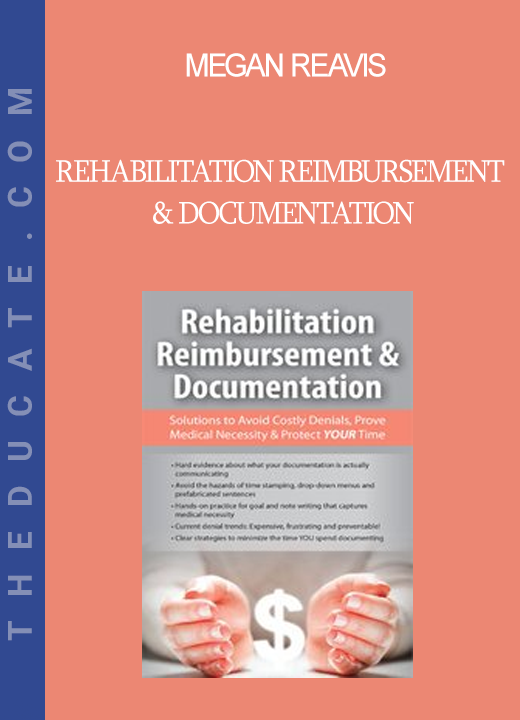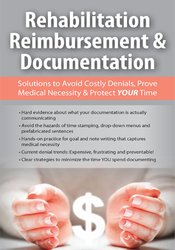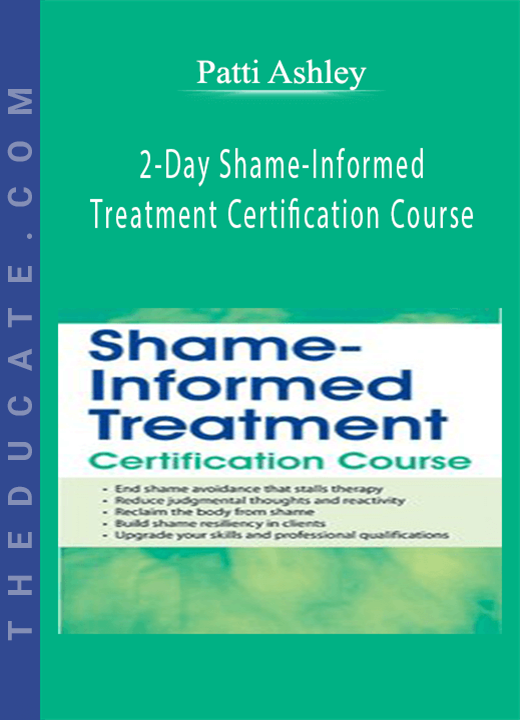Description
-
Megan Reavis – Rehabilitation Reimbursement & Documentation: Solutions to Avoid Costly Denials, Prove Medical Necessity & Protect YOUR Time
- Faculty:
- Megan Reavis
- Duration:
- 5 Hours 52 Minutes
- Format:
- Audio and Video
- Copyright:
- Mar 28, 2019
Description
Everything you now are documenting has a time stamp and if it doesn’t add up, it could cost you your job. Mary had seen a patient earlier in the morning and hadn’t completed a daily note while with the patient. At the end of the day, she completed her note, but couldn’t remember the actual time she had spent with her patient. She logged her time with the patient from 11:00 am to 11:45 am and went home for the day.
Mary comes in the next morning and is met by the Rehab Director wanting to know how she saw her patient when the patient wasn’t even in the building. The patient had been taken to the hospital at 10:45, making it impossible for Mary to have seen the patient at the time she had written down. Mary is now under investigation for false documentation because she didn’t take the time to write down her actual time spent and she risks losing her job and her license.
Medical necessity is a big topic in our industry. It is a term that has adopted a variety of definitions and we are looking at an increase in inappropriately billed claims. We now must justify our clinical decisions while capturing treatment accurately and effectively. Audits have become everyday industry concerns as we face the allegations of “inappropriately billed” claims. There is an increased expectation to justify why we are providing services and why our clinical expertise is needed. The standards have changed, the challenges mount and patients still deserve the very best care.
This recording will provide a thorough understanding of medical necessity and a “how-to” guide for effective documentation. Whether you’re a therapist completing evaluations or an assistant completing progress notes, every area of therapy documentation is examined. Computerized documentation or paper versions will never replace the clinical decision making used to determine medical necessity.
Ongoing training and education are our biggest defenses to ensure our claims get paid for the therapy services the patients benefited from. Imagine being able to put your attention back on your patients, without fear of what you are missing in the documentation. Case studies focus on typical, everyday patient situations with opportunity for questions and discussion to enhance the learning experience.
Handouts
| Manual – Rehabilitation Reimbursement & Documentation (1.34 MB) | 83 Pages | Available after Purchase |
| Instructions for ASHA Credit – SELF STUDY ONLY – 03/28/19 (38.5 KB) | Available after Purchase |
Outline
Documentation And Medical Necessity
- Medicare A and the upcoming changes around SNFs and home health
- Medicare B and outpatient reimbursement
- Managed care
- ACOs/ bundled payments and the shift therapy deliver
Evaluations, Need & Reimbursement
- Reasons for evaluation and how to justify medical necessity
- Prior level of function and what key components to include
- Co-morbidities/Complexities and how they will impact reimbursement
- Goal writing and what to add to make it measurable
Critical Terminology: What It Means To Your Documentation
- Determining medical necessity
- Rehab terminology that must be included in your daily documentation
- Skilled vs. unskilled terminology
Supportive Documentation
- Case study: Break down the components of the treatment plan
- Pitfalls to avoid
- Drop-down menus are not your friend
- If you didn’t write it, it didn’t happen
Coding and Diagnoses
- CPT codes and what will get you paid
- Avoiding “Red Flag” codes and why they are denying them
- Diagnoses that won’t get you paid
Denial Management
- Understanding RAC, MAC, ADR, denials, and ZPIC audits
- Reasons for denials: Top 10 reasons we are not getting paid
- Quality assurance audits used to decrease unpaid claims
Faculty
Megan Reavis, MBA, BS, COTA/L, Related seminars and products: 1
Megan Reavis, MBA, BS, COTA/L, has worked primarily in the geriatric setting for the past 20 years, as a clinician and in management roles, including work as a Rehab Director and Area Director. Megan is a national educator and has written and taught continuing education courses to rehab audiences around the country on a variety of clinical, documentation and reimbursement topics that draw from her areas of expertise. Additionally, Megan has worked as a consultant for Outpatient PT companies and Skilled Nursing Facilities to maximize outcomes and reimbursement, perform auditing and manage denials.
Speaker Disclosures:
Financial: Megan Reavis has an employment relationship with Orchestrall, Inc. She receives a speaking honorarium from PESI, Inc.
Non-financial: Megan Reavis has no relevant non-financial relationship to disclose.







Reviews
There are no reviews yet.